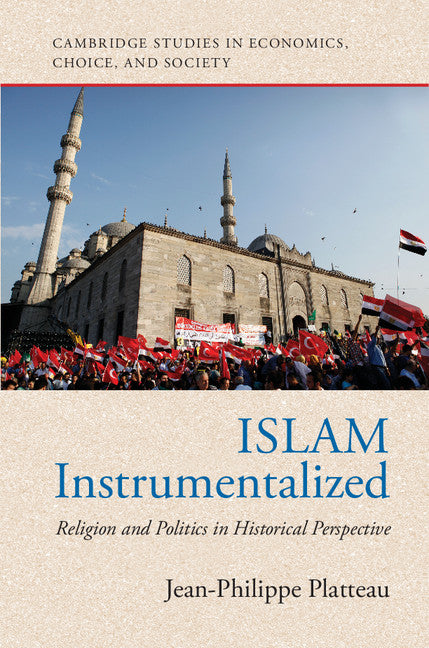Freshly Printed - allow 8 days lead
Couldn't load pickup availability
Islam Instrumentalized
Religion and Politics in Historical Perspective
This book challenges the widespread view that Islam is a reactionary religion defending tradition against modernity and individual freedom.
Jean-Philippe Platteau (Author)
9781316609002, Cambridge University Press
Paperback / softback, published 6 June 2017
544 pages
22.8 x 15.2 x 3 cm, 0.79 kg
'Islam Instrumentalized moves beyond the ideological 'clash of civilizations' discussions of the role of religion in political and economic development to provide a theoretical analysis, grounded in the principles of modern political economy, of how religious and political elites interact. More than just a fascinating discussion of Islam in the modern world, Platteau gives us a template for discussing these issues in other parts of the world, and placing them in comparative perspective. This book is the new starting point for any economist wanting to work on these questions.' Lawrence Blume, Goldwin Smith Professor of Economics, Cornell University, New York
In this book, economist Jean-Philippe Platteau addresses the question: does Islam, the religion of Muslims, bear some responsibility for a lack of economic development in the countries in which it dominates? In his nuanced approach, Platteau challenges the widespread view that the doctrine of Islam is reactionary in the sense that it defends tradition against modernity and individual freedom. He also questions the view that fusion between religion and politics is characteristic of Islam and predisposes it to theocracy. He disagrees with the substantivist view that Islam is a major obstacle to modern development because of a merging of religion and the state, or a fusion between the spiritual and political domains. But he also identifies how Islam's decentralized organization, in the context of autocratic regimes, may cause political instability and make reforms costly.
1. Introduction
2. Insights from early modern Europe
3. Conflation between religion and politics: the case of Islam
4. The dominant system of politico-religious relations in Islam: a historical perspective
5. The rise of Islam in conditions of state crisis: the case of weak states
6. The rise of Islam in conditions of state crisis: the case of kleptocratic despotism
7. Islamism in historical and international perspective
8. Revivalist movements in other religions
9. Enlightened despotism examined
10. Islam, politics, and the challenge of enforcement
Bibliography
Index.
Subject Areas: Economic systems & structures [KCS], Development economics & emerging economies [KCM], Economic growth [KCG], Political ideologies [JPF], Islamic theology [HRHT], Islam [HRH], Industrialisation & industrial history [HBTK], Social & cultural history [HBTB]


